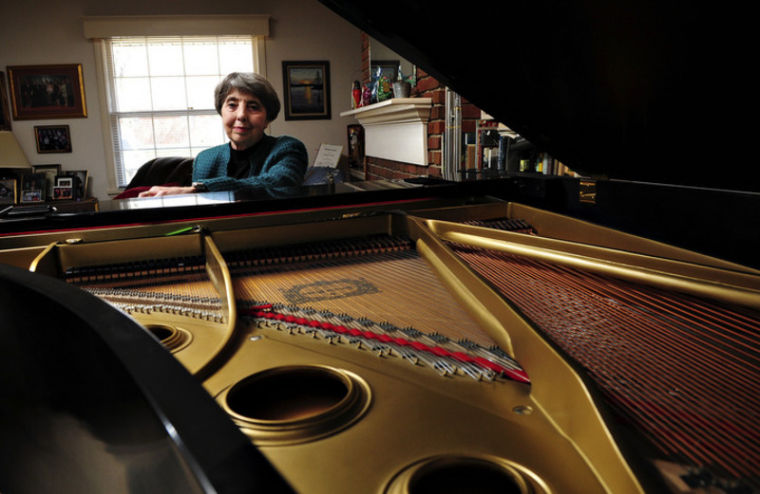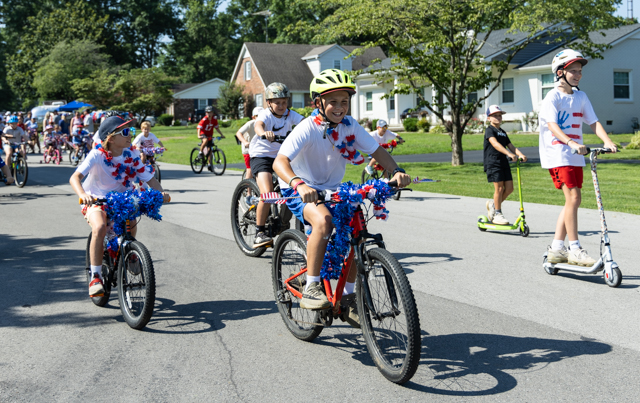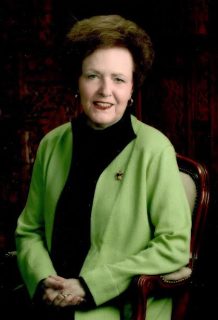Bowling Green piano teacher featured in recitals in two states
Published 10:20 am Tuesday, March 19, 2013

- Miranda Pederson/Daily News Janet Bass Smith, who was recently named a fellow of Music Teachers National Association Foundation, at her piano Tuesday March 12, 2013 at her Bowling Green home.
Janet Bass Smith of Bowling Green has played pianos in Russia, Hungary and inside Mammoth Cave in Kentucky. Her first piano, though, didn’t make a musical sound. It was made of cardboard.
Smith, now 77, who grew up in Cheyenne, Wyo., practiced on a cardboard keyboard because there was no money for a piano at home. A music teacher since she was 16, Smith appears in a black-and-white picture on the wall of her teaching studio at home. In the picture, her hair is up in the ringlet curls that she despised – she was a self-described tomboy. Age 6, in a cute little dress, she sits opposite her brother, Donald, who was two years older. Two small children sitting in front of two huge pianos.
Challenges like that first concert in front of that big piano are what Smith enjoys. She will trek miles as a guide at Mammoth Cave National Park, a pursuit she began at age 55. She will urge her students to practice, practice, practice and when they don’t, she’ll pull out a Star Trek phaser gun and zap them.
“They know I’m upset,” she said. “It breaks the ice.” She also has Star Trek tribbles figures and loves science fiction.
She writes poetry and paints. She didn’t take up painting until age 42 and one of her poems written in 1999 won a first place from the Ohio Valley Writers Guild. She was principal keyboardist, board president and marketing chairwoman for the Bowling Green Chamber Orchestra, now known as Orchestra Kentucky. She’s been an active member of the Music Teachers National Association since 1979, when she organized a local association in Missouri, and is also a former president of the Kentucky Music Teachers Association.
Smith was recently honored by the MTNA as an MTNA Foundation Fellow at the 2013 MTNA National Conference at the Disneyland Hotel in Anaheim, Calif., March 9-13.
MTNA, founded in 1876, is a nonprofit organization of independent and collegiate music teachers committed to furthering the art of music through teaching, performance, composition and scholarly research.
Smith is described by her husband since 1957, Charles, 76, a flutist, composer and former chairman of the music department at Western Kentucky University, as a “Renaissance woman” because of her varied pursuits. She simply says her pursuits are living life. She has little patience for machines, such as computers that boot up too slow, and little patience for people who can’t keep up with her goals, her pace or her dreams. She and Charles came to Bowling Green in 1989.
“I will never retire. What would I do?” she asks. The idea of retirement is a foreign concept to the very fiber of her being.
Smith will embark on a series of piano recitals in Kentucky and Missouri in April and May, playing a two-hour program of her favorites. She holds a Doctor of Musical Arts degree in piano performance from the University of Missouri-Kansas City, Conservatory of Music, and is an independent piano teacher in Bowling Green with 28 current students – the youngest 6 and the oldest of adult age.
Loretto Motherhouse, a retired nuns’ home in Kentucky founded in 1812 by the Sisters of Loretto, will host a recital at 3 p.m. EDT April 7. On April 14, Smith will play a recital at 2 p.m. in the Parish Hall behind Christ Episcopal Church in Bowling Green. The programs move to the Glasgow Baptist Church in Glasgow at 2 p.m. May 5. The final recital will be at 7 p.m. May 16 at St. Andrew Lutheran Church in Cape Girardeau, Mo.
Their oldest son, Randall, 53, teaches saxophone at Truman State University in Missouri. Brad, 52, is a band director outside Cape Girardeau and Bryan, 50, is an engineer in Bloomington, Ind. The Smiths have seven grandchildren.
“I want to play this music so that the audience will enjoy it,” she said. Missouri is one of the locations for a recital because the Smiths lived and worked there from 1975 to 1979 at Southeast Missouri State University, where Charles headed the music theory and flute department and Janet taught piano majors. They also spent time in Winston-Salem, N.C., where Janet taught at Livingstone College in Salisbury, N.C., from 1972 to 1975. The college is affiliated with the AME Zion Church.
She will play works by Wolfgang Amadeus Mozart, Ludwig Von Beethoven, Robert Schumann, Franz Liszt, Frederic Chopin, Claude Debussy, Sergei Rachmaninoff, Percy Grainger, George Gershwin and Alberto Ginastera.
The evolution of the piano that sits in her living room is priceless.
She graduated from the cardboard keyboard to real piano keys when a man told her parents that he wanted to store his upright piano at their Wyoming house. Now 14, she could practice at home, though that relationship turned out to be fleeting. Right around the time of a recital, the man took the piano back. Her parents scrapped together $100 and bought an upright piano. Later, her family was able to procure an 1898-vintage Baldwin piano by selling the upright. Smith later had the vintage Baldwin rebuilt. Selling that piano, she bought a 7 1/2 foot Yamaha grand piano that today sits in the living room.
A smaller piano is in her teaching area, situated snugly within the room’s long closet. In one corner of the room are 10 wooden shelves in a “V” that house most of her musical scores. She’s fond of composer George Crumb, who composed his musical scores in big circles. She cuts out the circles. “His music is very far out. I perform it once in a while for my students. Kids need to hear something else besides Beethoven,” she said.
Charles and Janet were married in 1957 in Wyoming. They met in 1954 when Charles was seeking a pianist to accompany him while he played the flute for a concert for Rotarians. He was willing to pay 50 cents an hour. Janet became ill after having her first sip of alcohol at the Rotary function, and he put his arm around her.
“The rest is history,” Janet Smith said.
The 1999 poem that Janet Smith wrote about another snowy Wyoming drive that won the prize is titled “The Wyoming Tour.”
“Driving down the highway between Cheyenne and Casper/ Wind-swept plains – snowing harder now./ So this is what it’s like to be a concert pianist.
“A day here – a short practice on a bad piano –/ Old friends/ A concert – then restless sleep –/ Off again the next day.
“Two-hundred miles to the next concert./ The snow a soft blanket covering the rolling plains./ That evening, a short practice/ A concert – a restless night.
“Back in the car to Laramie – another two-hundred miles./Patches of black asphalt mingling with deepening drifts,/ Here and there a rock or tree showing its dark face to the landscape.
“All those years alone in the practice room – only the music.
“Now alien ribs of snow fences peer through cottony drifts,/ Marking the invisible highway.”






